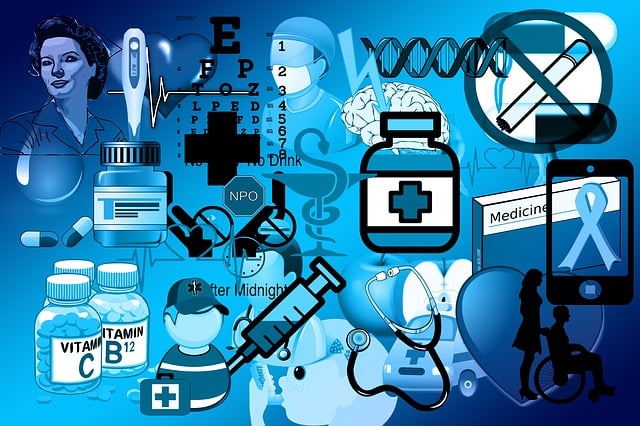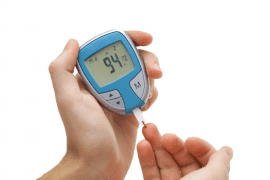
Heart disease is a prevalent and life-threatening condition that affects millions of people worldwide.
According to the American Heart Association, Cardiovascular Disease was responsible for approximately 19.1 million deaths worldwide in 2020. And 1 in 3 deaths in women are due to cardiovascular disease.
It encompasses a range of disorders, including coronary artery disease, heart failure, arrhythmias, and valvular heart diseases.
As medical advancements continue to progress, the question of whether heart disease can be cured arises.
In this article, we will explore various aspects of heart disease treatment, the potential for a cure, and the current state of medical interventions.
Understanding Heart Disease
Before delving into the potential for a cure, it is important to understand heart disease and its underlying causes.
Heart disease typically develops due to a combination of factors, including genetics, lifestyle choices, and underlying medical conditions such as hypertension, high cholesterol, or diabetes. These factors can lead to the buildup of plaque in the arteries, which restricts blood flow and oxygen to the heart.
Having a comprehensive understanding of heart disease is crucial in recognizing the signs and symptoms at an early stage and preventing it from becoming critical.
While heart disease is common among both men and women, it’s important to note that the signs and symptoms of a heart attack can differ between the genders.
Being aware of the specific signs for a heart attack in women and men helps individuals identify potential cardiac issues promptly. This knowledge empowers individuals to take proactive measures for their heart health, seek timely medical attention, and reduce the risk of complications.
Can a Heart Disease Be Cured? Exploring the Possibilities
- Lifestyle Changes
The first line of defense against heart disease is often lifestyle modifications. These may include adopting a heart-healthy diet, engaging in regular physical activity, quitting smoking, and managing stress levels. These changes can help reduce the risk of heart disease progression and improve overall cardiovascular health.
- Medications for Heart Disease
Your doctor may prescribe specific medications to treat heart disease effectively. These medications include:
Blood thinners: These medications improve blood circulation by reducing the blood’s ability to clot, thereby lowering the risk of harmful clots.
Statins: Statins are prescribed to lower LDL (bad) cholesterol levels, which helps reduce the formation of plaque in the arteries.
Beta-blockers: Beta-blockers help alleviate angina symptoms and lower blood pressure.
Nitrates: Nitrates widen the arteries, improving blood flow and providing relief from chest pain.
Angiotensin-converting enzyme (ACE) inhibitors: ACE inhibitors are used to treat high blood pressure by reducing the levels of angiotensin II, a hormone that narrows blood vessels.
Angiotensin II receptor blockers (ARBs): ARBs work similarly to ACE inhibitors by blocking the narrowing effect of angiotensin II on blood vessels, thus reducing blood pressure.
Calcium channel blockers: These medications relax the muscles in the artery walls, widening the arteries and lowering blood pressure.
- Interventional Procedures
In some cases, medical interventions such as angioplasty or stenting may be necessary. Angioplasty involves widening narrowed or blocked arteries using a balloon-like device, while stenting involves placing a small mesh tube to keep the artery open. These procedures can restore blood flow and alleviate symptoms in certain individuals.
The Potential for a Cure
Scientific Advancements
With ongoing scientific research, the possibility of finding a cure for heart disease becomes increasingly promising. Scientists are continually exploring new avenues, such as gene therapy and stem cell research, to develop innovative treatments that could potentially reverse the damage caused by heart disease. While these treatments are still in their early stages, they hold significant potential for the future.
Targeted Therapies
Another area of focus is the development of targeted therapies that address specific mechanisms underlying heart disease. By understanding the molecular pathways involved in the disease process, researchers can identify potential drug targets and develop medications tailored to individual patients. These personalized approaches may offer greater efficacy and a higher chance of a cure.
How to Prevent Heart Disease?
To prevent the development of heart disease and minimize its negative impact on health, it is crucial to adopt preventive measures. Here are some ways you can reduce your risk:
- Quit smoking: Stop smoking and avoid exposure to secondhand smoke, as smoking is a major risk factor for heart disease.
- Moderate alcohol intake: Limit your alcohol consumption to moderate levels, as excessive drinking can contribute to heart problems.
- Maintain an active lifestyle: Follow a regular exercise routine that includes aerobic activities like walking, jogging, or cycling. Aim for at least 150 minutes of moderate-intensity exercise per week.
- Adopt a healthy diet: Emphasize a diet low in saturated fats and high in fruits, vegetables, whole grains, legumes, and lean sources of protein like poultry or fish.
- Manage stress: Find healthy ways to cope with stress, such as practicing relaxation techniques, engaging in hobbies, or seeking support from loved ones.
- Ensure sufficient sleep: Aim for 7 to 9 hours of quality sleep each night to promote overall heart health.
- Monitor cholesterol and blood pressure: Regularly check your cholesterol levels and blood pressure, and work with your healthcare provider to manage them within healthy ranges.
- Treat underlying health conditions: If you have conditions like diabetes, make sure to properly manage and control them, as they can significantly impact heart health.
By incorporating these preventive measures into your lifestyle, you can significantly reduce the risk of developing heart disease and maintain a healthy cardiovascular system. Remember, prevention is key when it comes to heart health.
Conclusion
While a complete cure for heart disease remains elusive, significant progress has been made in its management and treatment. Through lifestyle changes, medications, and medical interventions, individuals with heart disease can lead fulfilling lives while minimizing the risk of complications.
Ongoing research and advancements in targeted therapies offer hope for the future, bringing us closer to the possibility of a cure.
Remember, prevention and early detection are key in mitigating the impact of heart disease on individuals and society as a whole.
Frequently Asked Questions
-
Can heart disease be completely cured?
No, heart disease cannot be completely cured. However, it can be effectively managed through lifestyle changes, medications, and medical interventions. These interventions aim to control symptoms, improve quality of life, and reduce the risk of further complications.
-
Are there any natural remedies or alternative treatments for heart disease?
While lifestyle changes form an integral part of heart disease management, it is essential to consult with a healthcare professional before trying any alternative remedies. Natural remedies, such as herbal supplements or specific diets, may interact with prescribed medications or have limited scientific evidence supporting their efficacy.
-
Can heart disease be reversed through diet alone?
A heart-healthy diet can play a crucial role in managing heart disease and preventing its progression. However, it is unlikely that diet alone can completely reverse the condition. It is important to combine dietary changes with other recommended interventions, such as medication and regular exercise, for optimal results.
-
Is heart disease only prevalent in older individuals?
While the risk of heart disease increases with age, it can affect individuals of all ages. Certain risk factors, such as smoking, high blood pressure, and a sedentary lifestyle, can contribute to the development of heart disease at a younger age. Therefore, it is essential to maintain heart-healthy habits regardless of age.
-
Can heart disease be prevented?
While it may not be possible to prevent heart disease entirely, it is certainly possible to reduce the risk. By adopting a healthy lifestyle, managing underlying medical conditions, and attending regular check-ups, individuals can significantly lower their chances of developing heart disease.
-
How important is early detection and intervention in heart disease?
Early detection and intervention are crucial in managing heart disease effectively. Regular health screenings, such as blood pressure checks and cholesterol level assessments, can help identify risk factors and allow for early interventions. Timely treatment can prevent further damage to the heart and improve outcomes.




